How to Be More Efficient at Work
You start your day with a to-do list. Eight hours later you haven’t made a dent in it.
Or, even worse, it’s gotten longer.
You’re not alone. Lots of people struggle with being efficient and productive. We want to get the most out of the workday but, too often, we find ourselves bringing those incomplete tasks home, or having them linger to the next day, so we start out already behind.
We reached out to productivity experts and asked them for strategies to help us better organize our workday and get the most out of our efforts. Here’s what they told us.
Set Three (or Four, or Five) Goals at the Start of Every Day
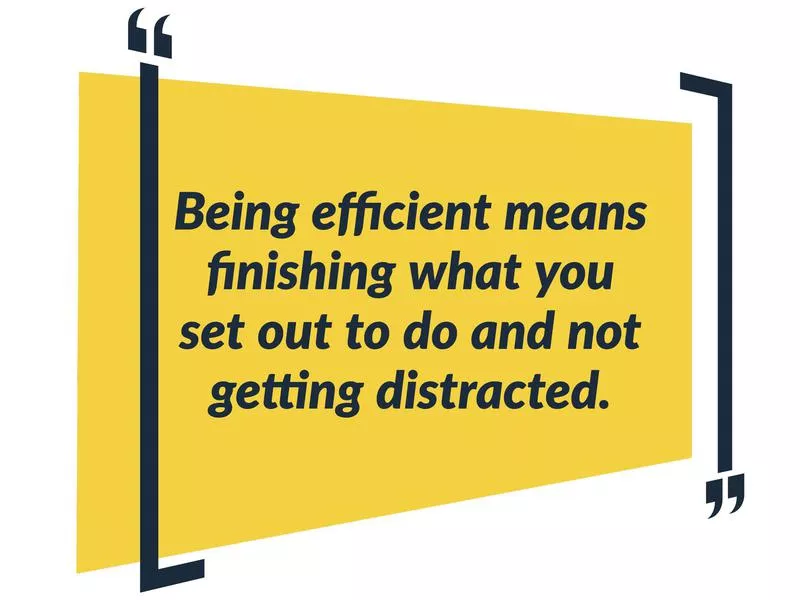
This was by far the most common piece of advice offered by our efficiency experts. They all offered different strategies and different ways of setting goals, but the reasoning was usually the same: Being efficient means finishing what you set out to do and not getting distracted by tasks that come up during the course of the day.
The Power of Goals
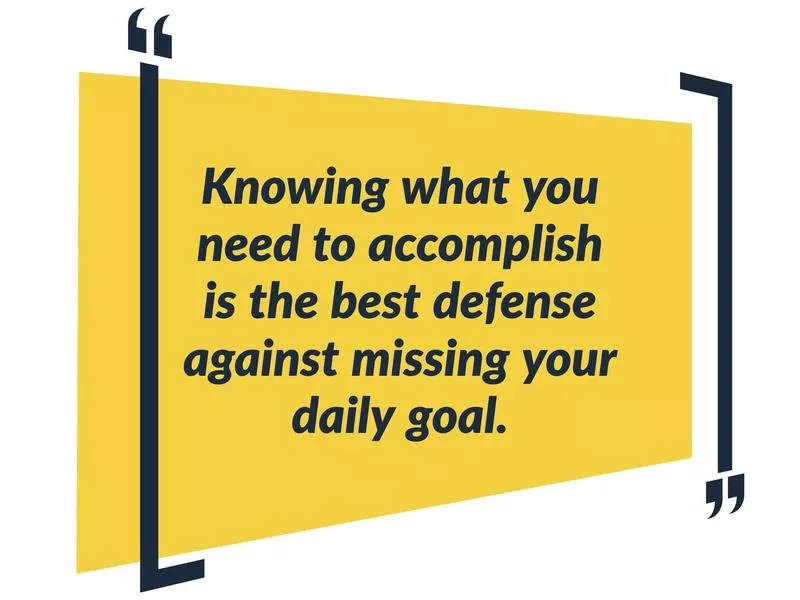
Knowing what you need to accomplish before the day begins is the best defense against missing your daily goal.
“When you force yourself to be deliberate about what you are doing, you can get more strategic and make sure the truly important things get done,” said Fiona Adler, who writes about entrepreneurship at DoTheThings.com and is the founder of Actioned.com, a productivity tool for individuals and teams.
She adds: “It can be as simple as using a Post-it Note and writing your top actions out for the next day before you finish work. There are also systems which allow you to do this online and share your actions with your team. Either way, if you know exactly what you are going to work on before you start, you’ll be a lot more productive.”
Know Your Own Work Rhythms
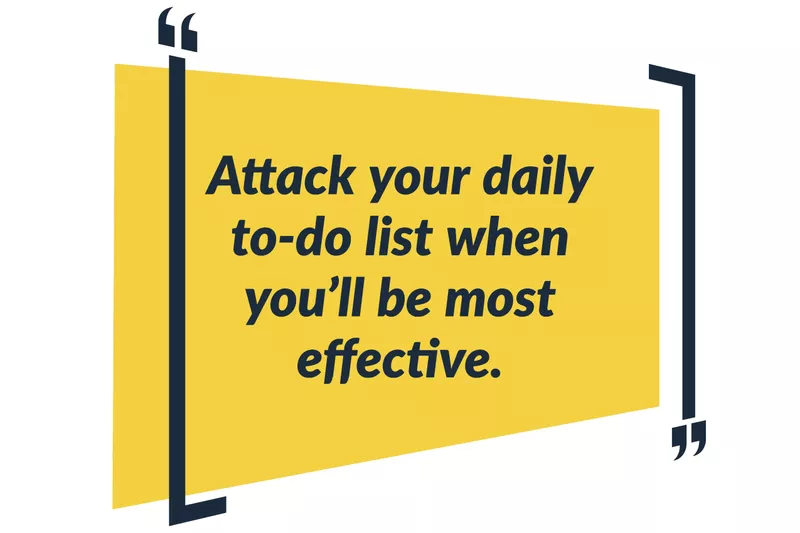
Eileen Roth, author of “Organizing For Dummies,” says different people are productive at different times of the day. Knowing when you work best and when you are less efficient can help you squeeze more productivity out of each workday.
Divide your workday to peak and non-peak time, and attack your daily to-do list when you’ll be most effective.
“Peak time is your best, most energetic time of the day. This is when to work on your priorities,” Roth said. “Non-peak time is for routine things like accounting or data entry or returning phone calls.”
Combine Work and Exercise
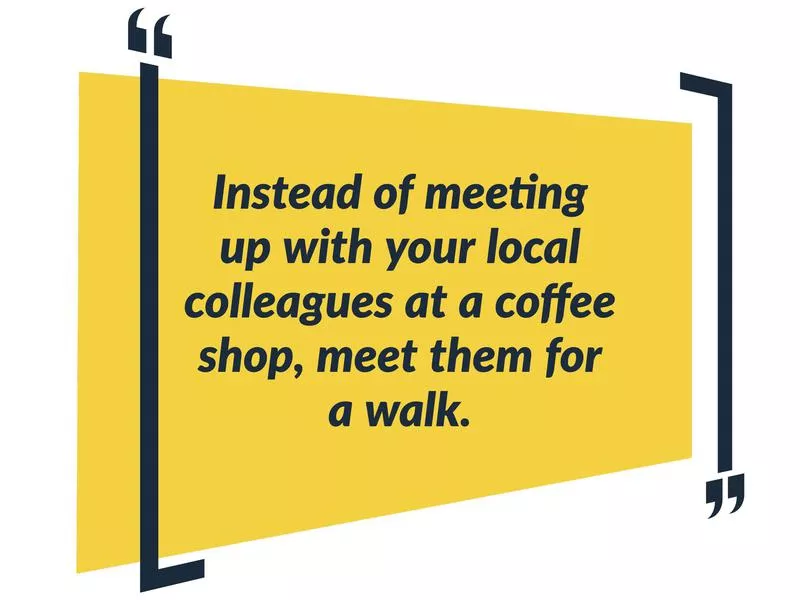
Paige Arnof-Fenn, the founder and CEO of the Boston-based marketing firm Mavens & Moguls, had to find ways to creatively multitask when she started her own company 17 years ago. One of the big laments of small business owners is finding time to de-stress in the 16-hour days that are often required to get a fledgling company off the ground.
“When I worked at large companies they had gyms at the office or groups who walked at lunch, but when you work from home you have to get creative,” she said. “Instead of meeting up with your local colleagues at a coffee shop, over a meal or chatting with them on the phone, meet them for a walk so you can catch up while you are getting some exercise too.”
Schedule Time to Think
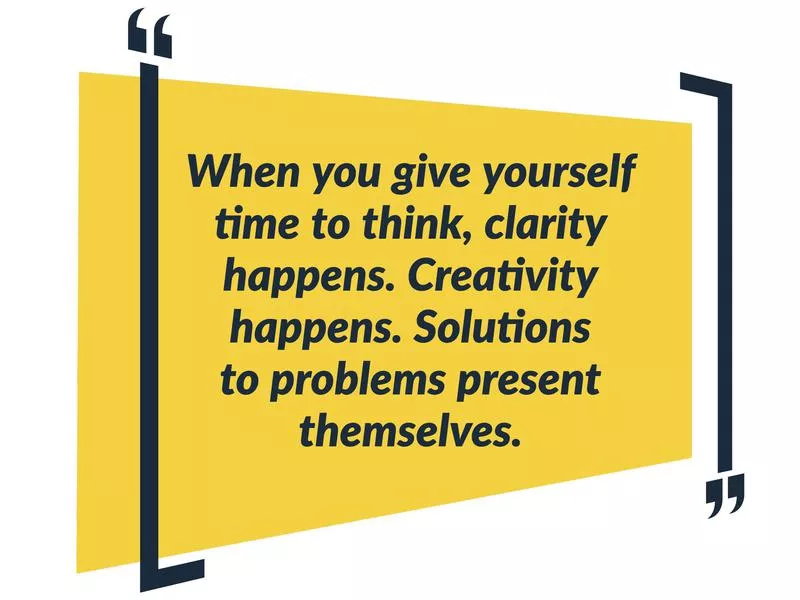
Executive coach and leadership trainer Connelly Hayward urges clients to set aside at least one 30-minute block – and preferably, several hour-long blocks – of time each week to think.
“This isn’t doing time, it is thinking time” Hayward said. “I find that when people start setting aside thinking time, they are able become more efficient. Get a pad and a pen and take notes. Turn the phone off. No computer, TV or reading. When you give yourself time to think, clarity happens. Creativity happens. Solutions to problems present themselves. New ways of doing things come to mind.”
Schedule Breaks
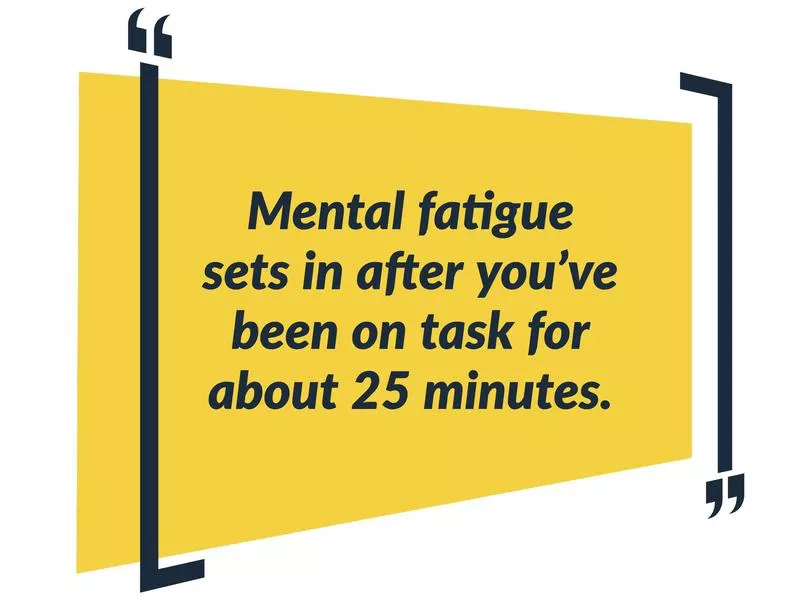
Karen Huller, formerly of Epic Careering, a branding and social media strategy firm, notes that mental fatigue sets in after you’ve been on task for about 25 minutes. “It causes mood drops, heightened emotional reactions, mistakes and inhibited decision making,” she said.
Taking a break – even just for a minute or two – to stretch and walk away from the task can erase these negative side effects of productivity.
“By slowly stretching for one-two minutes every twenty-five minutes and doing two-three minutes of mindful meditation, the brain will fully refresh and will operate at optimal capacity,” she said. “If the person is under high stress, whether it’s personal or professional in nature, mental fatigue will set in sooner, and breaks may need to be encouraged more frequently, like every fifteen minutes.”
Send Less Email
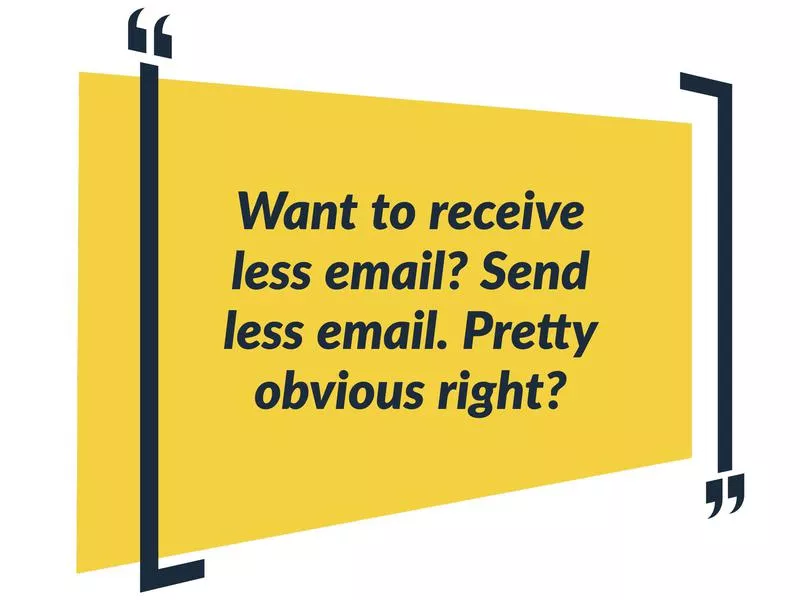
There’s an easy fix to reduce the amount of time you spend reading and responding to email, says Brittany EB Hardy, owner of Empty Desk Solutions.
“Pretty obvious right? Want to receive less email? Send less email,” she said. “Call or text instead. You’ll spend significantly less time in the email cycle of doom if you focus on sending less.”
Of course, email is inevitable, so Hardy’s team has designated email checking times at 9 a.m., 1 p.m. and 4 p.m. each workday.
“This allows us to quickly answer anything that requires a response and communicate with our clients, even if it’s a simple ‘Got it, we are on it!’ Then we move anything that has a task associated with it to our ‘to-do’ folder to be worked on either that afternoon or the next day,” she said.
Turn Off Notifications
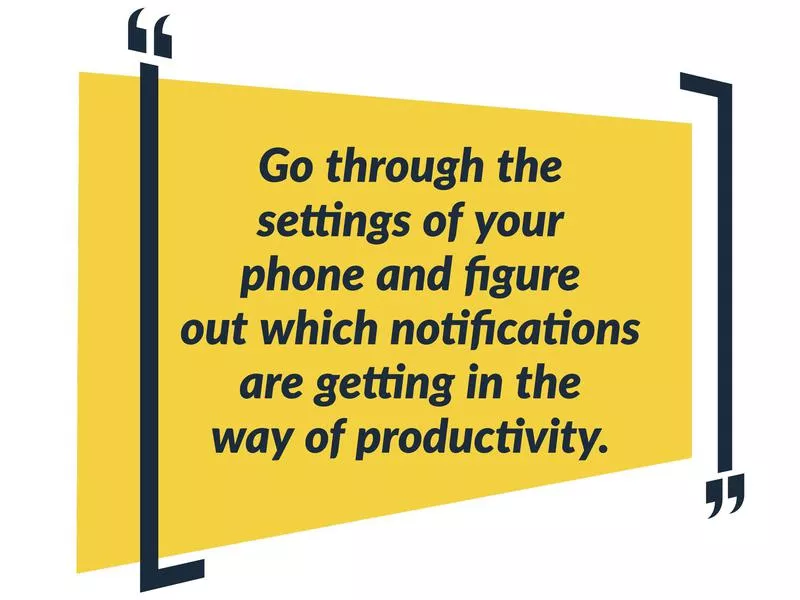
This was another one our experts frequently cited. All those dings and bells coming from your smartphone are productivity killers.
Go through the settings of your phone and figure out which notifications are getting in the way of productivity. Most of our experts also recommended deleting social media apps and other time-wasters from your phone entirely.
Get Radical With Your Phone
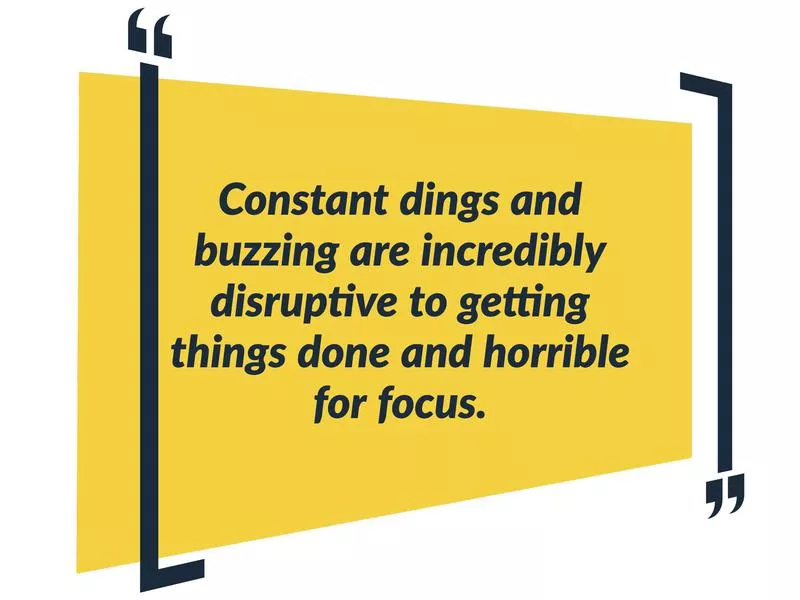
Real estate investor Aaron Norris offered an even more radical solution to the smartphone time suck.
“Get rid of the smartphone,” he said. “Constant dings and buzzing are incredibly disruptive to getting things done and horrible for focus. Chances are social media, news and stock updates can wait until your break or lunch. You’ll be shocked at how much more you get done in a day.”
Automate Repeated Tasks
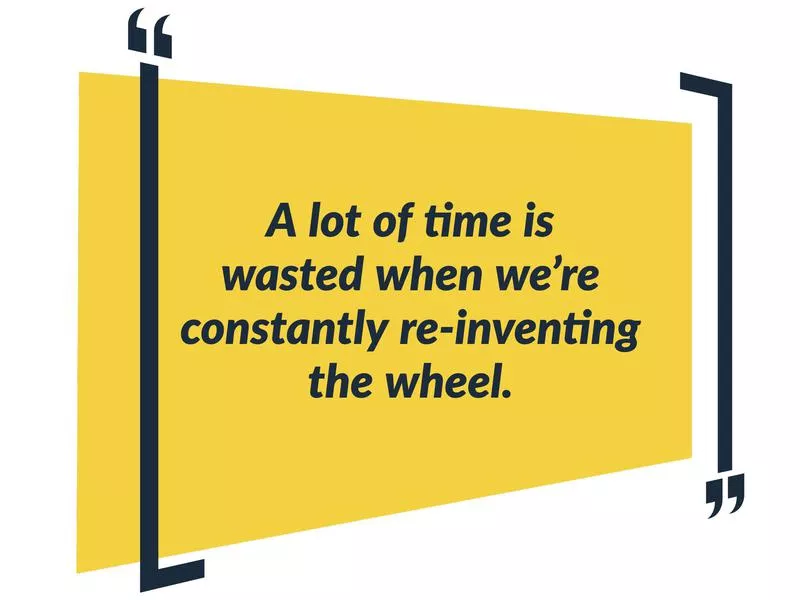
Adler recommends investing time to set up systems for any task you do on a regular basis. A lot of time is wasted, she notes, when we’re constantly re-inventing the wheel.
“This sounds complicated, but it’s not,” Adler said. “If you’re regularly writing the same or similar emails, use canned responses, text expanders or templates to save time. If you need to refer to certain information regularly, create a file with all of that information and create a shortcut to access it. If you’re regularly holding similar meetings, create a meeting format for the agenda and meeting notes, and stick with it.”
Take a Time Inventory
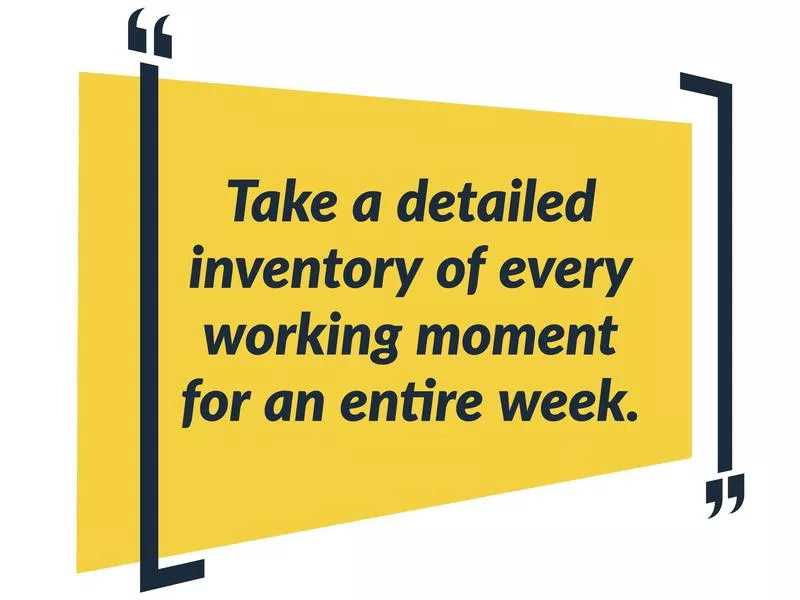
Vivek Chugh, founder and former CEO of the collaborative checklist app Listables, recommends taking a detailed inventory of every working moment for an entire week.
“For one week, track every minute of every day. By the end of the week you will easily see where you are losing time, spending too much time and where you can improve,” Chugh said. “This is an eye-opening exercise, one which some people continue to do even after the week is over.”
Follow Parkinson’s Law
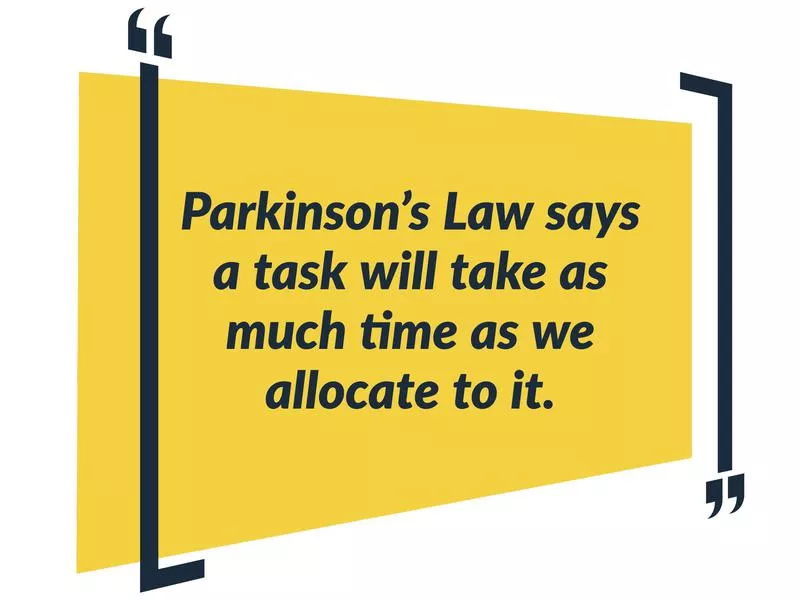
Parkinson’s Law says a task will take as much time as we allocate to it, so Huller makes a point of setting a timer when she works on a task.
“It makes more sense to schedule a task on your calendar (digital or physical) for the time you want it to take to complete a task,” she said. “Even if you don’t complete it in that time, you’ll find yourself much more focused, less distracted and productive if you are aiming to get it done in certain window of time you allocated.”
Huller adds: “Schedule something fun for immediately after this time, so you can reward yourself for completing the job. This helps your brain release dopamine and over time learn the association between completing tasks and good feelings.”
Only Handle it Once
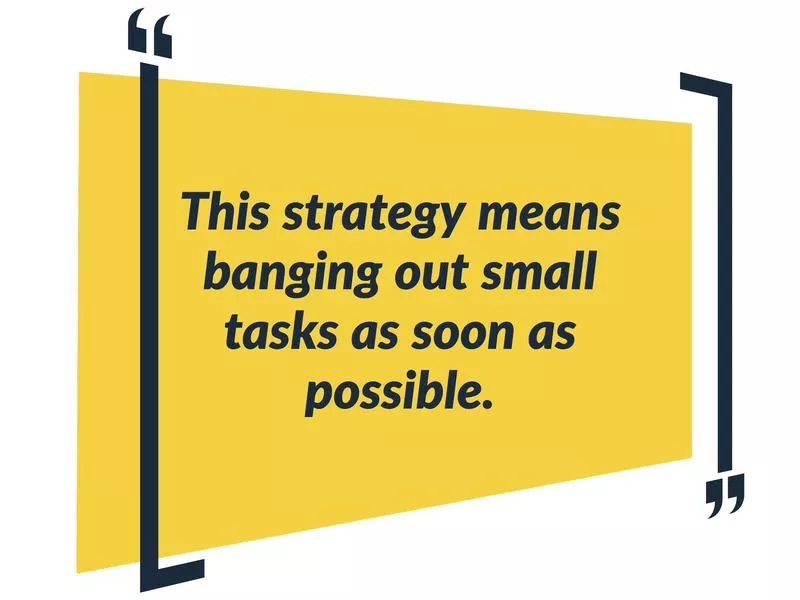
This strategy – abbreviated to OHIO, by the truly efficient – means banging out small tasks as soon as possible, according to executive coach Shefali Raina. How many times have you said “I’ll respond to that email later,” only to find an email inbox full of messages needing a response when later finally comes?
“For example, block your planner right away if you agree to a meeting schedule, respond to an email that requires a brief response immediately upon reading it, save the file in the right folder on your laptop – the list goes on,” Raina said. “This small time investment at the front end frees up the future time and attention you would have used to get back to these tasks, de-clutters your brain immediately and helps you maximize your time.”
Just Say No
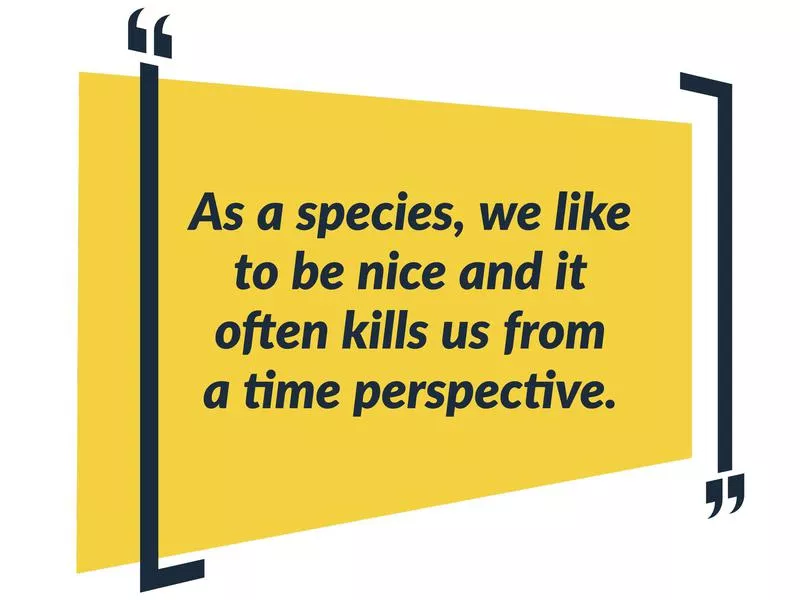
Jamie Cunningham, managing director and lead coach of SalesUp Business Coaching, says inefficiency plagues people who take on too much.
The only real fix to the problem is learning how to say no to tasks that are going to take time away from your goals and important projects.
“This can range from large commitments to ‘Can I just ask you a question?’” Cunningham said. “As a species, we like to be nice (which is a good general rule) and it often kills us from a time perspective. Questions can often wait. There are other people that can commit to that project. You’ll be surprised at how many ‘worse fears’ never [materialize] just because you said no to someone or something.”